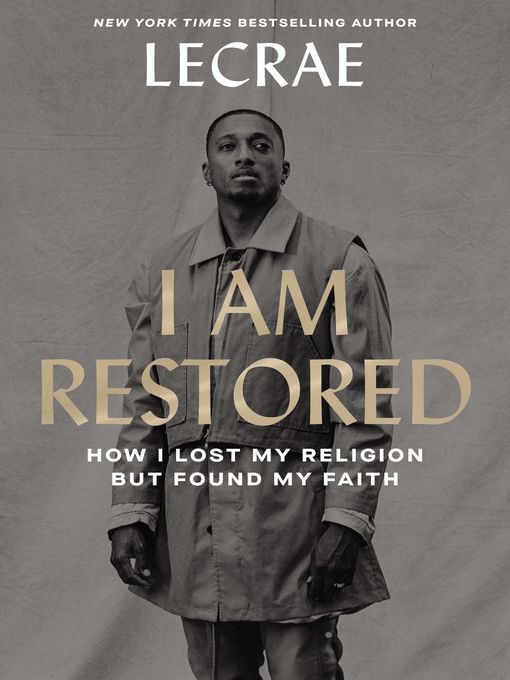
I Am Restored
How I Lost My Religion but Found My Faith
کتاب های مرتبط
- اطلاعات
- نقد و بررسی
- دیدگاه کاربران
نقد و بررسی

August 24, 2020
Grammy Award–winning hip-hop artist Lecrae delves into his struggles, shame, and destructive habits in this powerful follow-up to his 2016 memoir Unashamed. Lecrae writes that he used to see himself as “the tribal devotee addicted to proclaiming my own self-righteousness,” but after the publication of his last book, he began to feel like he hadn’t fully faced himself yet and realized that “accolades couldn’t hide the weaknesses of the heart.” He describes his life as “a wreck,” and says he turned to alcohol and pills to deaden the pain of long-buried childhood and teenage traumas. Lecrae discusses growing up in a family that felt “apathy toward pain and dysfunction,” suffering sexual and physical abuse, and his tumultuous “history with organized religion” and Reformed theology. To “rehabilitate life,” Lecrae took a four-month sabbatical from work, and he credits daily therapy for “revamping safeguards had previously torn down” and “recultivat relationship with God.” Lecrae also riffs on the current state of American politics, particularly the power of the Black Lives Matter movement and the nefarious effects of white privilege, as well as his own process of self-care and the ways he’s adjusted to celebrity, always returning to faith and his healing process: “I finally feel true joy. I feel the love that comes from allowing myself to be forgiven without constant shame.” Lecrae’s fans will love this.

October 1, 2020
In this latest book, Grammy Award-winning singer Moore, author of the best-selling Unashamed, shares his own personal struggles, intensified over time by clinical depression, along with years of hiding inner pain from his fans. Making references to a childhood of sexual abuse, violence, and the absence of a stable father figure, Moore reveals an awareness and a concern for social injustice. One issue close to his heart is a conflict that he sees between the Black American community and law enforcement. Committed to following Christ, Moore begins questioning the status quo of evangelical religion, particularly in its response (or lack of response) to social injustice. This, along with a desire to push the boundaries of Christian music, causes him to lose many fans and other supporters. Through a long struggle with depression and coping behaviors that test his faith in God, Moore comes to realize that trauma has the power to heal and that everyone experiences God in a unique way. Readers who are familiar with Jefferson Bethke's book Jesus \> Religion will recognize a similar development of faith. VERDICT This personal story of faith lost and found is especially recommended to Christians who are struggling to comprehend God's complex ways.--Chad Clark, San Jacinto Coll. Dist., Pasadena, TX
Copyright 2020 Library Journal, LLC Used with permission.

























دیدگاه کاربران